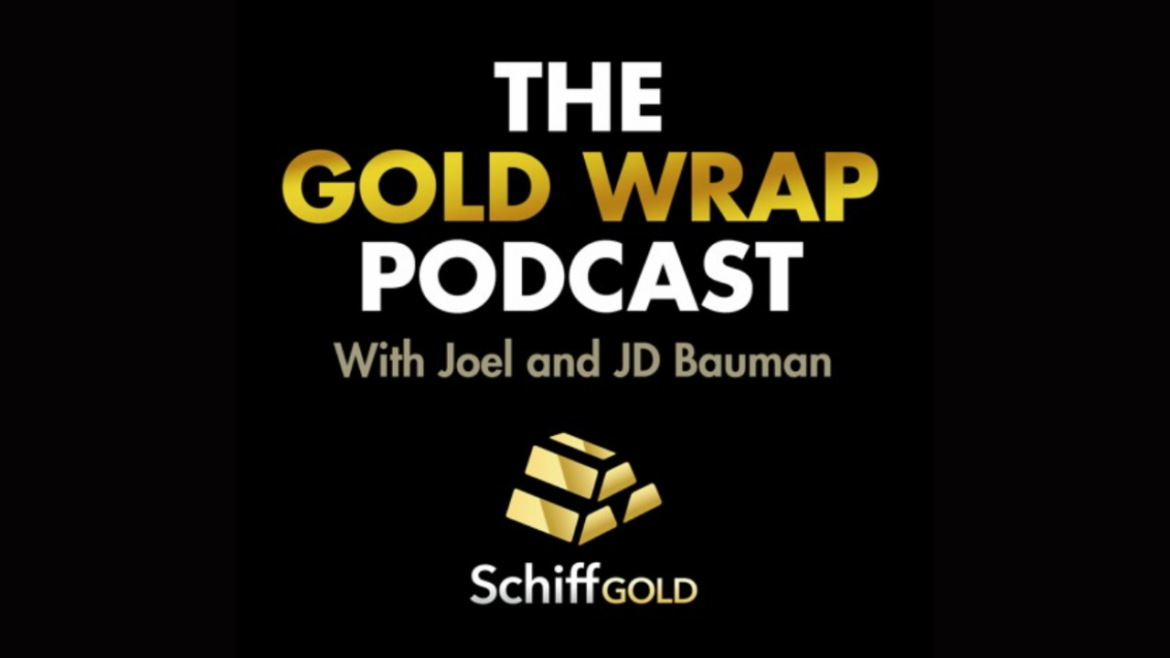Precious metals are apparently waking up. And here is where you can find the best deals.
Site:
Precious metals news
This week flashed early warning signs of a recession as gold and silver prices rose yet again. Despite an inflationary environment, non-essential goods are getting price cuts as the Fed reassures the public that rates won't go higher.
 PLOT THICKENS... IS THE FED QT MONETARY TIGHTENING A MYTH?? What About The Massive Decline In The U.S. Treasury Market Value
PLOT THICKENS... IS THE FED QT MONETARY TIGHTENING A MYTH?? What About The Massive Decline In The U.S. Treasury Market ValueJune 14, 2024
It seems that everyone believes the Fed QT Monetary Tightening is reducing the money supply, but I believe there is more going on behind the scenes. Also, why haven't any economists or MSM reported on the massive decline in the value of the U.S. Treasury Market...
The Federal Government publishes the spending and revenue numbers on a monthly basis. The charts and tables below give an in-depth review of the Federal Budget, showing where the money is coming from, where it is going, and the surplus or deficit.
Join Mike Maloney and Chris Martenson in this eye-opening interview as they delve into the crucial importance of tangible assets...
Inflation breeds desperation, and desperation breeds crime.As central banks in Europe and Canada cut interest rates, and expectations remain that the Fed will wait to cut until at least September if it cuts this year at all, our endlessly-wise global central bankers, the benevolent all-knowing stewards of the global economy, can’t seem to agree on what steps are needed to cool inflation back down to reasonable levels.
Bank of America forecasts a bullish outlook for silver prices, predicting an increase to an average of $35/oz by 2026 due to expected cessation of central bank rate hikes and rising investment in precious metals. Despite current price strength, further growth is anticipated, driven by positive trends in the gold market. However, pure silver mining equities are hard to find as silver is often mined alongside other metals. BofA recommends Pan American Silver and Wheaton Precious Metals for North American investors seeking silver exposure.
Singapore is set to become a leading gold hub as the gold market shifts eastward, driven by rising gold consumption in Asia and the proximity to central banks that are actively increasing their gold reserves. The World Gold Council's Shaokai Fan highlighted Singapore's strategic position and stability, predicting it could rival London and New York as a central bank gold vaulting hub. Factors include Singapore's political stability and tax incentives on investment gold.
Citi analysts predict that gold prices could reach $3,000 per ounce within the next 12 months due to strong physical demand, central bank purchases, and favorable macroeconomic factors. Despite potential fluctuations, prices are expected to stay above $2,000-2,200 per ounce, with significant increases anticipated in 2025. Factors supporting this forecast include resilience amid a strong US dollar and high interest rates, potential US economic slowdown, and sustained central bank demand.
The U.S. government reported a $347 billion budget deficit for May, significantly higher than the $240 billion deficit a year earlier. This increase is attributed to pre-payment of some June benefits and higher expenses for interest, Social Security, and defense. May's outlays rose 22% from last year to $671 billion, partially due to early benefit payments. Receipts for the month were $324 billion, up 5% from May 2023. The fiscal year deficit now stands at $1.202 trillion, a 3% increase from the previous year.
Jun 13, 2024 - 11:00:20 EDT
The Federal Reserve announced it is keeping its key interest rate unchanged to combat high inflation, which, while easing, remains elevated. The economy continues to grow, with strong job gains and low unemployment. The Fed now forecasts only one rate cut in 2024, revising previous expectations of multiple cuts, as it aims to reduce consumer demand and control price growth.
Treasury Secretary Janet Yellen stated that the U.S. national debt, currently at $34.7 trillion, is manageable if it remains stable relative to the economy. Despite high interest rates increasing the burden, Yellen emphasized the importance of focusing on the real interest cost of the debt. With net interest costs reaching $601 billion in the 2024 fiscal year, concerns remain about rising debt levels. Yellen supports President Biden's plans to address these challenges.
Despite the Federal Reserve holding interest rates steady and inflation showing signs of cooling, debt-burdened Americans, particularly those with lower incomes, find no relief. Prices remain 3% higher than a year ago, and the Fed only projects one rate cut this year, down from an earlier expectation of three. As a result, many maxed-out credit card borrowers are struggling with delinquency, exacerbating financial pressures for lower-income households.
U.S. weekly jobless claims rose to 242,000 for the week ending June 8, the highest level in 10 months, indicating a cooling labor market. This increase, surpassing economists' forecasts of 225,000 claims, reflects the delayed impact of the Federal Reserve's interest rate hikes. The unemployment rate also rose to 4% in May, while economic growth slowed in the first quarter.
In May, the producer price index (PPI), which measures prices producers receive for goods and services, unexpectedly fell by 0.2% instead of rising by the anticipated 0.1%. This decline, driven by a significant 0.8% drop in final demand goods prices, suggests a pullback in inflation. Additionally, initial unemployment claims rose to 242,000, the highest since August 2023. Stock futures gained modestly, while Treasury yields declined following the report.
Gold prices declined slightly after the Federal Reserve indicated only one interest rate cut for 2024, disappointing investors who hoped for two cuts. Despite a cooler-than-expected inflation report limiting the drop, spot gold fell 0.2% to $2,317.38 per ounce, and U.S. gold futures declined 0.9% to $2,333.10. Analysts suggest that gold's fundamental support remains strong, but surpassing $3,000 per ounce is unlikely.
Gold's surge to record highs is expected to continue throughout 2024, fueled by central bank purchases, particularly from China, along with geopolitical tensions and economic uncertainties. Despite the strong fundamentals supporting gold, analysts believe reaching $3,000 per ounce is unlikely. Currently, spot gold trades around $2,300 per ounce after hitting a record $2,449.89 on May 20, with expectations of reaching $2,600-$2,700 by year's end.
Americans should not expect interest rate cuts soon, as the Federal Open Market Committee is likely to keep rates steady in its upcoming decision, influenced by a strong jobs report. The CME FedWatch Tool indicates a 99.4% chance of unchanged rates. Despite initial projections for three rate cuts this year, Fed Chair Jerome Powell has emphasized that the central bank will maintain current rates until the economy shows sufficient signs of cooling.
To counter de-dollarization, the US should maintain domestic stability, pursue strong trade partnerships, and promote technological solutions, according to Carla Norrlöf, a think tank expert. Although the move away from the US dollar by countries like Russia, China, and other BRICS states has accelerated, Norrlöf believes that with strategic actions, the US can keep the dollar dominant. While de-dollarization has gained attention, its impact remains uncertain.
A bond-market indicator signaling a recession has been flashing since 2022, the longest on record, but it doesn't always predict immediate stock market trouble. Verdad Advisers analysts suggest this time might be different. Typically, equity investors react negatively when an inverted yield curve steepens, as it often signals a Fed response to economic downturns. However, the Fed's planned rate cuts aim to achieve a soft landing amidst ongoing economic growth, potentially leading to a prolonged inverted yield curve without immediate adverse effects.
The Consumer Price Index (CPI) showed a slight and unexpected dip in May, suggesting potential price relief for consumers and raising questions about the timing of Federal Reserve interest rate cuts. Annual inflation eased to 3.3% from 3.4% in April, below expectations. Monthly inflation was flat, the lowest since July 2022, and core CPI, excluding food and energy, increased by 0.2%, the lowest since October. These figures indicate a possible normalization of inflation, which could influence the Fed's future rate decisions, though rates are expected to remain unchanged for now.










